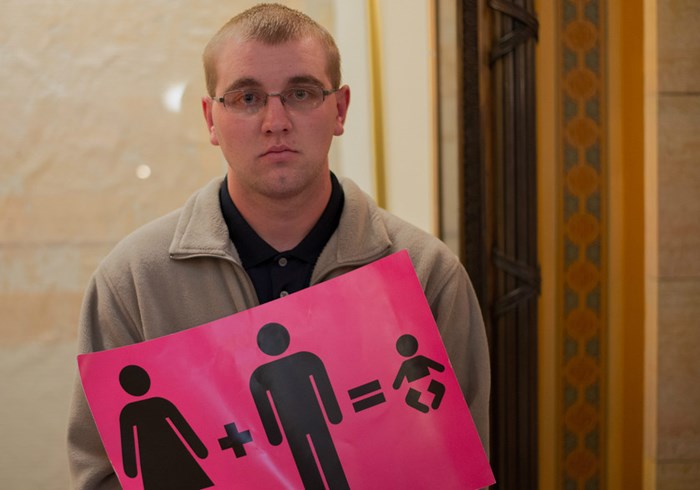
As Americans who believe in a "one man, one woman" definition of marriage become a minority for the first time ever, evangelical Christians actually have become more opposed to same-sex marriage, a recent Barna Group survey found.
Barna's June poll results revealed that as Americans have become more aware of the LGBTQ community's agenda, a majority of Americans have likewise become more accepting of legal recognition of same-sex unions and granting these unions equal rights.
Catholics, other religious groups, and religious nones have shown large increases in support for legal recognition of gay rights, but churchgoing Protestants—and evangelicals in particular—have maintained firm opposition to the legal measures on social and moral grounds.
For instance, over a third of "Practicing Catholics" think same-sex relationships are morally sound, a marked increase since 2003. Those who identified as "Practicing Protestants," on the other hand, show the least moral support among religious groups, with only 15 percent of 2013 respondents believing that same-sex marriages are morally acceptable. Evangelicals pronounced an even stronger rejection of the morality of same-sex relationships, with the percentage of disapproving respondents jumping from 95 percent to 98 percent.
However, numbers of evangelicals supporting same-sex couples' ability to adopt increased from 12 percent in 2003 to 18 percent in 2013. Adoption—as a biblically-motivated cause, as a way to combat abortion, and simply as a means to parenthood—has engaged increasing numbers of evangelicals in the last decade. Even as government restrictions have limited the number of children adopted, especially internationally, evangelical approaches to adoption have expanded and support has remained strong, with adoption seeing gains in financial support despite the challenging economic climate.
As per its usual methodology, Barna defined evangelicals through their responses to a series of nine criteria, including a self-professed personal commitment to Jesus Christ, commitment to evangelism, belief in salvation through grace, and claim to the complete accuracy of the Bible. By this methodology, Barna's report claims that evangelicals comprise roughly 8 percent of the overall American population.
Barna's definition of "evangelical" contrasts that of a recent Pew study. In the latter, roughly 19 percent of the survey respondents self-identified as white non-Hispanic evangelical Protestants. Pew found that for the first time in history, a (slim) majority of Americans support legalization of gay marriage. However, Pew also reported that while only 22 percent of white evangelical Protestants favored same-sex marriage in 2013, the number who supported "legal agreements" recognizing same-sex unions more than doubled in the last 10 years.
Barna Group president David Kinnaman noted in the report that evangelicals maintain their beliefs regardless of cultural trends. "Some will say this demonstrates evangelicals' principled behavior; others will claim this proves their repressive social views. Either way, the data shows that evangelicals remain countercultural against a rising tide of public opinion," he said.
CT has extensively covered evangelicals' beliefs on same-sex marriage, including responses to the Supreme Court's ruling on Proposition 8 and DOMA and the role of faith—including debate over "a license to discriminate"—in determining adoption policies.

Support Our Work
Subscribe to CT for less than $4.25/month


















